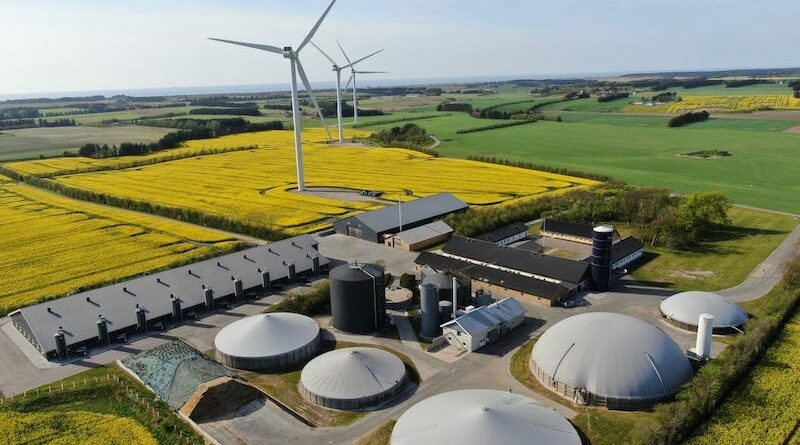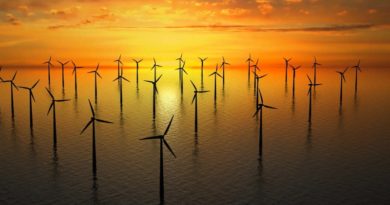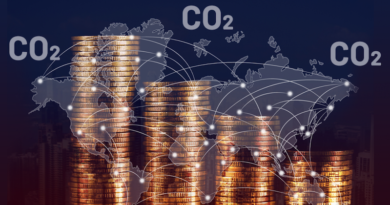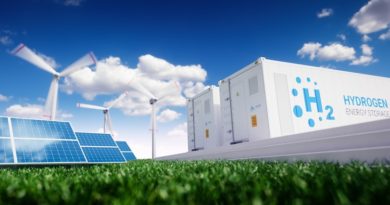
Strategies for Energy Diversification and Carbon Neutrality Strengthening Highly Strategic Energy Sectors
In a context of growing geopolitical divergence and tensions, Europe’s high level of dependency to fossil fuels imports appears more and more as a strategic vulnerability. It is indeed difficult to ignore that among the key players of the discussions on the future of Ukraine, two of them are the largest natural gas producers worldwide, while Europe has become the largest importer of LNG worldwide. As pointed out very clearly by Mario Draghi in his seminal report, Europe is facing the end of an era of energy security and geopolitical stability, and these evolutions are two sides of the same coin.
This is a new challenge for Europe, but fortunately, one for which we are well prepared due to the unexpected convergence between this new energy security agenda and the carbon neutrality agenda that has been pursued since 2019 under the European Green Deal.
Indeed, decarbonization and the development of clean tech, that were central to the energy transition vision of the first von der Leyen Commission, are increasingly seen as key elements of the geopolitical stance of the second. Strengthening key strategic energy sectors is thus becoming the Union’s industrial priority. It is the vision of the Clean Industrial Deal.
First and foremost in this agenda stands electrification, which appears as the most efficient way to decarbonize most of Europe’s transportation, heating, and industrial use-cases, and the most important strategic energy sector to strengthen. To my mind, the deployment of EU-made clean technologies in these sectors: battery electric vehicles, heat-pumps, industrial electric furnaces and hydrogen generation for industrial uses, must be the key priorities of our European policies in the next years. The French energy transition agenda puts them front and center. For instance, our national heat-pump development plan aims to produce 1 million heat-pumps per year and 2 million electric battery vehicles per year by 2030.
These new electricity consumptions create a need for an increase in power generation, that must be met by European-made generators.
The Net Zero Industry Act (NZIA) provided a clear path for Member-states to ensure that European demand is directed towards European clean industry to ensure its success in a very competitive international landscape.
France is willing be the first country to use NZIA resilience criteria in its tenders for renewable energy as of this year. We expect to extend its use to all net zero technologies, from electrolysers to wind-mills, and I hope that our example will be followed by many !
However, I do believe that we need to go even further. Resilience criteria are submit to circumvention and uneasy to verify and deploy. Moreover, they provide low legal security for businesses. In order to really trigger capacity building in Europe in the field of clean techs, I believe that we should take direct inspiration from the US’s inflation reduction act, to which we never really answered, and take steps towards using explicit “Made in Europe” criteria for some key technologies, as recommended by Mario Draghi. I am happy to see that the European preference is now front and center in the Commission’s ambition, and I will make proposals in this direction in the next months.
But not all use-cases can be electrified. Gas or fuel powered energy generation, large industry furnaces, planes, trains and boats, and even some heating solutions cannot be easily converted to electrical technologies. To ensure strategic autonomy, we thus have to accelerate dramatically the deployment of low-carbon and renewable gases and fuels, that can be produced locally, in Europe.
Biogaz is a key ingredient of this acceleration. Europe climate is ideal for farming. This is a unique geographical chance that we must put to good profit.
I am convinced that methanization provides a low-carbon energy that substitutes effectively to imported natural gas and provides important positive externalities to our farmers: income supplements, digestate, contribution to agro-ecological transition. I am committed to a radical acceleration in this production, as France will soon issue new tools to encourage this production.
Biofuels are a similar opportunity. Europe enjoys one of the largest biomass resource on the planet. If we don’t have natural gas, we have plants and trees ! This can be the basis for larger biofuel production to ensure that air and sea transport can be ensured with locally produced energy.. RefuelEU and Fuel EU Martitime regulations paved the way, and we have to deliver these targets through an ambitious industrial strategy to develop production capacities in Europe. However, we must also face the reality that we do not have enough biomass worldwide to sustain a continued growth of air and sea transport. E-fuels must come to help here, and I am happy that Europe is a world leader in these technologies.
I strongly believe that our Union’s strategic autonomy now depends also on its energy security, which itself relies, in an Europe that does not possess large fossil resources, on a accelerated development of low carbon technologies in Europe. The Commission, under Executive Vice President Séjourné’s impulsion, has taken decisive steps to accelerate this transition. France will be the strongest support of this agenda, that embodies both president Macron’s competitiveness and strategic autonomies priorities.




